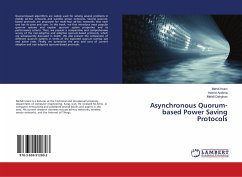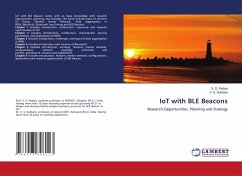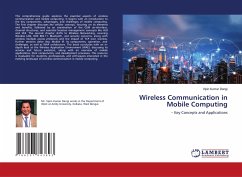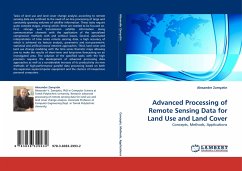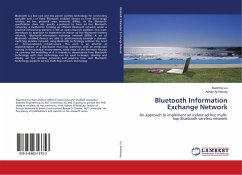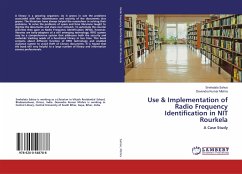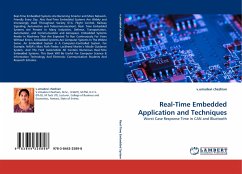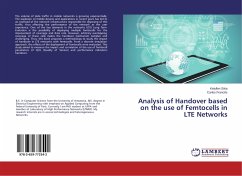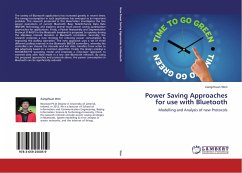
Power Saving Approaches for use with Bluetooth
Modelling and Analysis of new Protocols
Versandkostenfrei!
Versandfertig in 6-10 Tagen
45,99 €
inkl. MwSt.

PAYBACK Punkte
23 °P sammeln!
The variety of Bluetooth applications has increased greatly in recent times. The energy consumption in such applications has emerged as an important problem. The research presented in this dissertation investigates the low power operations of current Bluetooth Basic Rate/Enhance Data Rate (BR/EDR) technology and explores several novel power saving optimization approaches for applications. Firstly, a Packet Reassembly and Segmentation Protocol (P-RASP) in the Bluetooth baseband is proposed to operate during the idle/sleep interval duration in Bluetooth controllers. Secondly, the research propos...
The variety of Bluetooth applications has increased greatly in recent times. The energy consumption in such applications has emerged as an important problem. The research presented in this dissertation investigates the low power operations of current Bluetooth Basic Rate/Enhance Data Rate (BR/EDR) technology and explores several novel power saving optimization approaches for applications. Firstly, a Packet Reassembly and Segmentation Protocol (P-RASP) in the Bluetooth baseband is proposed to operate during the idle/sleep interval duration in Bluetooth controllers. Secondly, the research proposes a new strategy for reducing power consumption by improving the polling operation. The new approach uses a set of three different polling intervals in the Bluetooth BR/EDR controllers, whereby the controllers can choose the intervals and link state transfers from active to idle adaptively based on a common algorithm. Finally, the design employs a M/G(M/M)/1/N queueing model and proposes a cross-layer approach to transmit data with Hold mode in a low rate Bluetooth network. By using the proposed approaches and protocols above, the power consumption in Bluetooth can be significantly reduced.



